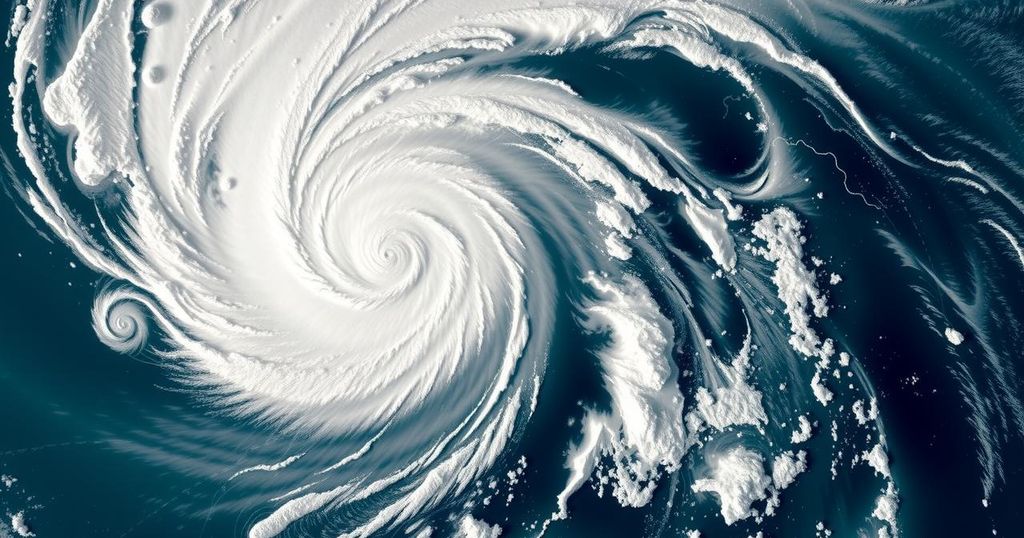Cyclone Chido Devastates Mayotte and Threatens Eastern Africa
Tropical Cyclone Chido has wreaked havoc in Mayotte, causing extensive damage and prompting emergency responses, while also affecting the Comoros Islands and threatening Mozambique. With high winds and structural destruction, the cyclone’s arrival is part of a concerning trend of severe weather events linked to climate change in southern Africa.
Tropical Cyclone Chido has caused significant destruction across the French territory of Mayotte in the Indian Ocean, with winds surpassing 220 kilometers per hour. The cyclone, described as the most severe to strike the region since 1934, has led to widespread property damage and power outages, although no casualties have been reported thus far. Officials, including Mayotte Prefect Francois-Xavier Bieuville, are urging the local population to shelter in solid structures as rescue operations begin post-cyclone. Red alerts remain in effect for the general public while emergency responders carry out their duties.
In addition to Mayotte, the Comoros Islands are also feeling the impact of Cyclone Chido, prompting authorities to enforce a red alert in certain areas. There are unconfirmed reports concerning the welfare of a group of fishermen who ventured into the sea prior to the cyclone’s arrival. With damage estimates still forthcoming, the French government has mobilized 110 rescuers from mainland France and Reunion, with an additional force scheduled to arrive soon.
As Cyclone Chido moves eastward, Mozambique is bracing for potentially severe impacts, with projections suggesting that up to 2.5 million individuals in the northern regions of Cabo Delgado and Nampula may be affected. Neighboring countries such as Malawi and Zimbabwe are also preparing for possible flooding and other associated dangers. The cyclone season in southeastern Africa, which extends from December to March, has seen a notable increase in the frequency and intensity of such storms, raising alarms about the ongoing contributions of climate change in exacerbating weather-related disasters and humanitarian crises in impoverished regions.
Cyclone Chido poses a serious threat to various regions, particularly the French territory of Mayotte, as it approaches the eastern coast of Africa. The cyclone’s strength and the historical context of such storms in the Indian Ocean underscore the significance of this weather event. Prior cyclones, such as Idai and Freddy, have led to devastating consequences in terms of human casualties and infrastructural damage, highlighting the vulnerabilities of southern African nations to natural disasters. Furthermore, ongoing climate change challenges worsen the intensity of such storms, leaving economically disadvantaged regions to bear the brunt of these disasters despite contributing minimally to global greenhouse gas emissions.
In conclusion, Cyclone Chido represents a significant meteorological event affecting Mayotte and the surrounding regions, exacerbating existing vulnerabilities due to climate change. With severe winds and extensive damage, officials and emergency services are mobilizing to assist affected populations while further anticipating the cyclone’s impact on Mozambique and beyond. The historical context of devastating cyclones in this region underscores the urgency of addressing the implications of climate change to mitigate future humanitarian crises.
Original Source: www.voanews.com




Post Comment